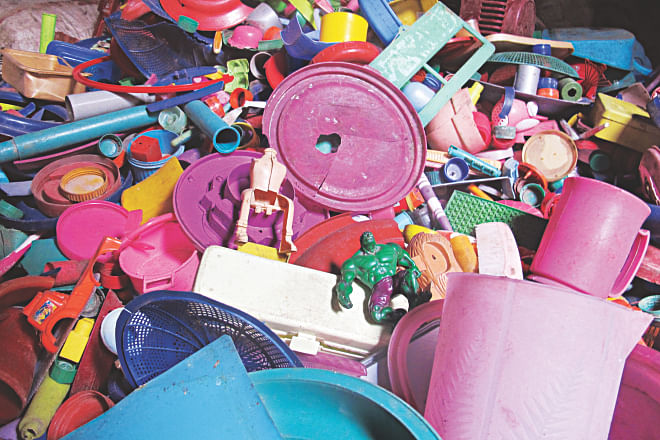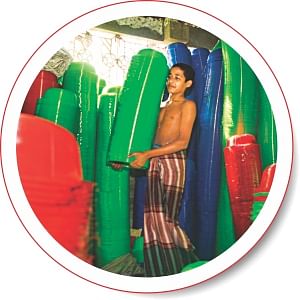SMALL UNITS, DOING BIG

Go green! Save energy!
These are the advices you get free every day. You hear a lot about green energy, recycling and protecting this and that. From government officials to NGO workers, activists, donors and film stars, from the media to multinational companies and world leaders -- all look worried about environment these days. They frequently use words and phrases like sustainable development, ecofriendly, hybrid, global warming, climate change and endangered species. They expect you will also be aware of these.
The matter doesn't rest here if you are living in a developing country like Bangladesh. You learn from them that your country, instead of doing enough for environment, is heavily depending on the developed world for doing the heavy lifting in this department. There are reasons for that -- the dark murky water of the Buriganga, an overflowing skip placed on the middle lane of a busy street or the unbearable stink of Hazaribagh. There is indeed a lot of work to do.

But, the thing is, a lot of what are being done here goes unnoticed by the NGOs, foreigners and even our own government.
Take, for example, recycling. If you visit the shore of the Buriganga to the south of the capital, you will see recycling going on in large scale. There is no big recycling factory spewing dark clouds in the sky; just hundreds of small ones, employing thousands of people.
It is mindboggling to think about what would have happened if the recycling sector was not here in Dhaka. Our soil would have been scattered with bits of plastic that never decay and our rivers would have had thousands of plastic pieces floating around.
Plastic you throw away are scoured out of skips by rag pickers and brought to the bank of the Buriganga in Islambagh at shops that buy them. Those shops sell the used plastic to factories for Tk 15 to Tk 100 a kg and the factories clean them and broke them down to pieces to sell to another factory which make powder or grains out of them.
The powder or grains are then used by another factory to make items like buckets, mugs, containers, soap cases and even plastic furniture, said Abdul Kalam, owner of discarded plastic processing plant in Islambagh.
A dozen bathroom mugs are sold for as little as Tk 85 to the wholesalers and retailers end up paying Tk 10-20 for each.
You might not know the bathroom mug or the bucket you use or the Tupperware you have in the fridge were made this way out of broken discarded action figures. But you heard local and foreign campaigners talking about recycling. Yes, it is already in practice in your country.

 For all latest news, follow The Daily Star's Google News channel.
For all latest news, follow The Daily Star's Google News channel. 



Comments